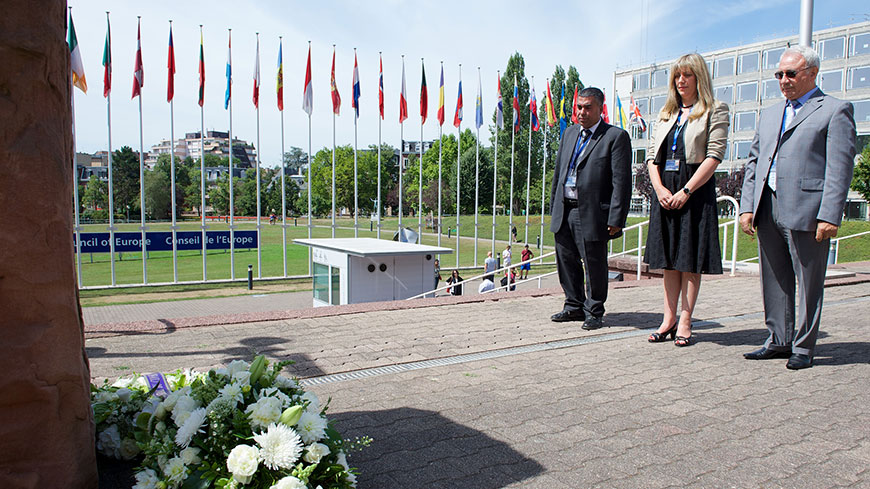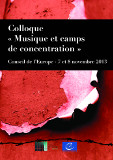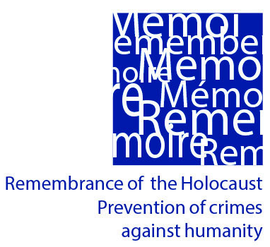On the 31st July 2015, the Council of Europe observed one minute of silence to mark the 71th anniversary and to pay homage to the victims of the genocide committed against Roma during the Second World War.
The Roma nation commemorates this tragedy on August 2–the date when, in 1944, over 3 000 Roma were exterminated in gas chamber V of ''Zigeunerlager BIII'' at Auschwitz-Birkenau.
It is not known precisely how many Roma were killed in the genocide, but historians estimate that up to 220 000 Roma were murdered, or every fourth Roma believed to have been living in Europe before the Second World War.
“The Porajmos" or "Samudaripen" –the genocide of the Roma–is by far the biggest tragedy in the history of the Roma. "Today we stand in remembrance of those who were murdered in the darkest hours of history, and we stand united in our resolve to fight anti-Gypsyism, anti-Semitism, homophobia, Islamophobia and other forms of discrimination and prejudice,” said Gheorghe Raducanu, President of the European Roma and Travellers Forum, before laying a wreath in front of the Holocaust memorial stone at the forecourt of the Council of Europe Palais de l’Europe building.
“Remembering the Holocaust is not enough: laws that protect human rights and human dignity must follow, and law enforcement tools must be applied effectively to prevent and punish manifestations of extremist ideology, including anti-Gypsyism,” he added.
“The poisonous roots of anti-Gypsyism are very deep indeed,” said Snezana Samardzic-Markovic, Director General of the Council of Europe's Directorate of Democracy, on behalf of the Secretary General Jagland. “Under the Nazis, anti-Roma sentiments could easily be exploited for the purposes of the exterminatory policy. It seems that in many countries of Europe they can still be exploited for political purposes today.”
“Seven decades after Auschwitz, anti-Gypsyism is on the rise, in some member states it has entered mainstream politics,” she said. “The Council of Europe and the entire international community have a responsibility to act against it.”
Six years ago, the Council of Europe acknowledged the Roma Holocaust as genocide, and invited its member states to include the Roma extermination in history teaching in schools. A more formal recognition of the Roma Holocaust could be an important symbolic step in the fight against anti-Gypsyism, Samardzic-Markovic said.
See also:






